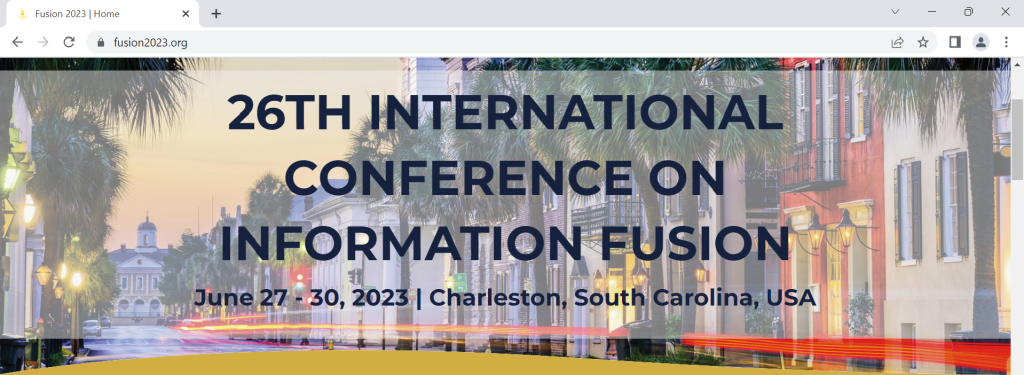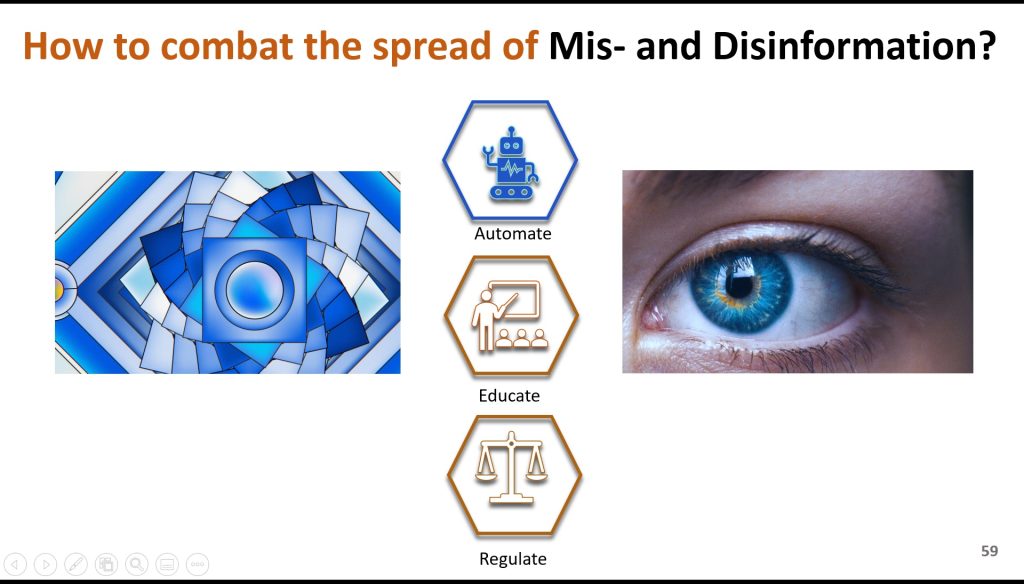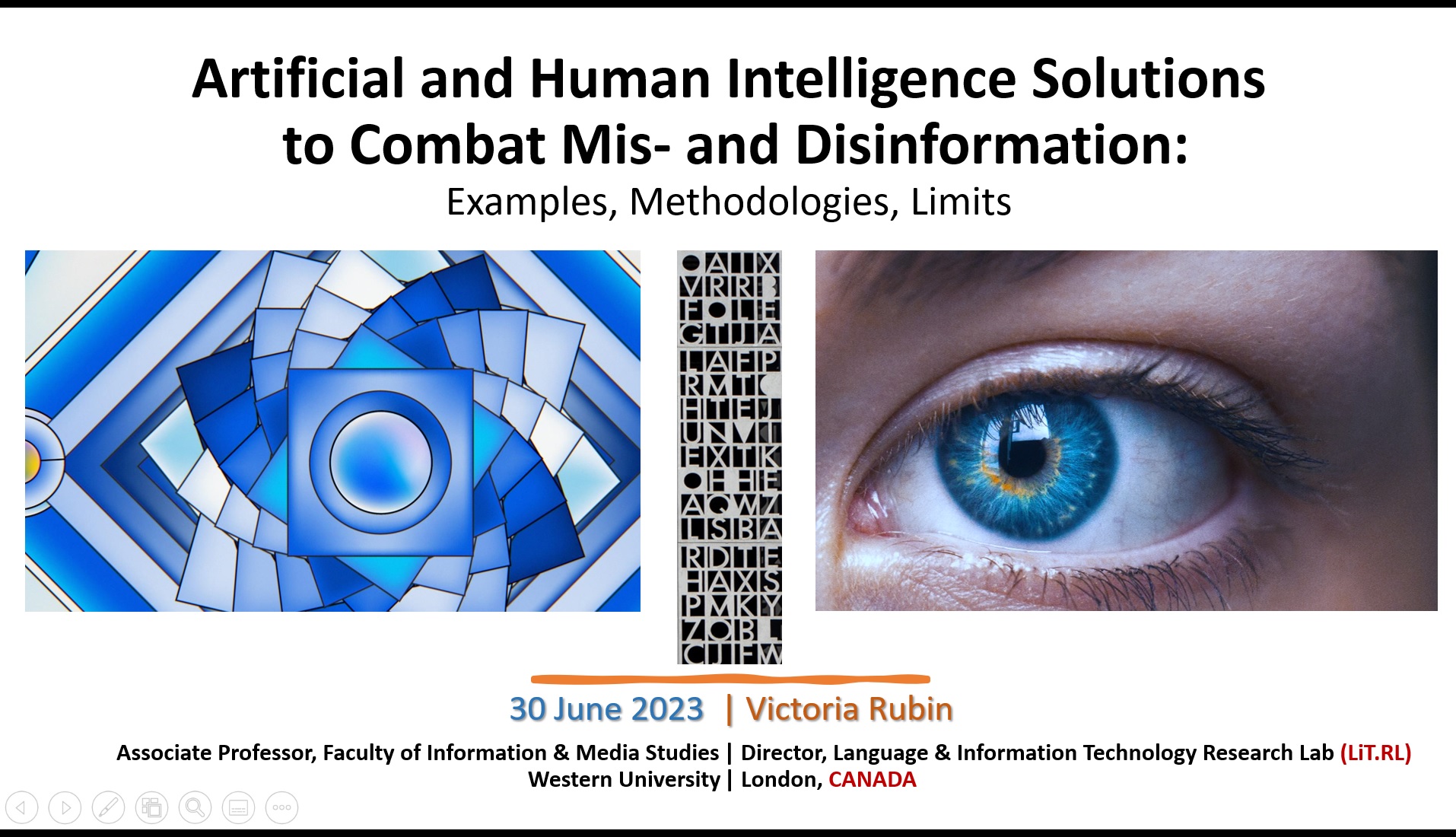
On July 30, 2023, Dr. Rubin presented a plenary speech at the 26th International Conference on Information Fusion in Charleston, South Carolina, USA. See details about the event here: https://fusion2023.org/
Rubin’s talk in entitled “Artificial and Human Intelligence Solutions to Combat Mis- and Disinformation: Examples, Methodologies, Limits.”

Abstract: “Deceptive, inaccurate, or misleading information can be spread intentionally (in an act of disinformation) or unintentionally (as misinformation). Being ill-informed is problematic for decision making either way, in most spheres of life, be it health, finances or politics. To aid human users with the identification of various kinds of problematic “fake” content, several methodologies have been developed in the fields Natural Language Processing (NLP)/Computational Linguistics, Machine Learning (ML), and Computer Science. Five large families of such systems include automated deception detectors, clickbait detectors, satirical fake detectors, rumor debunkers, and computational fact-checking tools. While computational literature documents their advances, these systems’ existence is barely known outside of the experimental labs and their adoption is slow. This talk exemplifies representative methodologies, their success rates, and limitations. Given the viral nature and the scale of the problem, adoption of some form of automated detection systems is inevitable. Yet, to avoid being disinformed, the final solution resides in the human mind: which sources to trust, what messages to believe, whose expertise to rely on. Rubin synthesizes evidence-based research from interpersonal, social, and cognitive psychology, computer-mediated communication, and information science to expose inherently human pragmatic challenges. Rubin’s (2019) Mis- and Disinformation Triangle posits that three interacting causal factors enable the infodemic: Digital media users serve as susceptible hosts, prone to being deceived; various types of “fakes” bombard their hosts as virulent pathogens; and digital platforms are financially motivated to remain conducive environments to spread the infodemic. Rubin proposes that simultaneous and sustained disruption of interactions between these factors can dampen the infodemic. Susceptible minds require more purposeful and vigorous training in the practical skills of digital literacy in the educational system. Toxic environments urgently need greater legislative oversight and regulation. Automated solutions can assist human users in detection at large scale, yet automation alone is insufficient as deterrence or prevention. Thus, the society should be more invested in deploying artificial intelligence (AI) in conjunction with our human intelligence (HI) to combat the problem of mis- and disinformation.”

FUSION 2023 proceedings are typically published by the IEEE in IEEEXplore and indexed by Scopus.
A selection of plenary keynote speakers is detailed here: https://fusion2023.org/plenary
